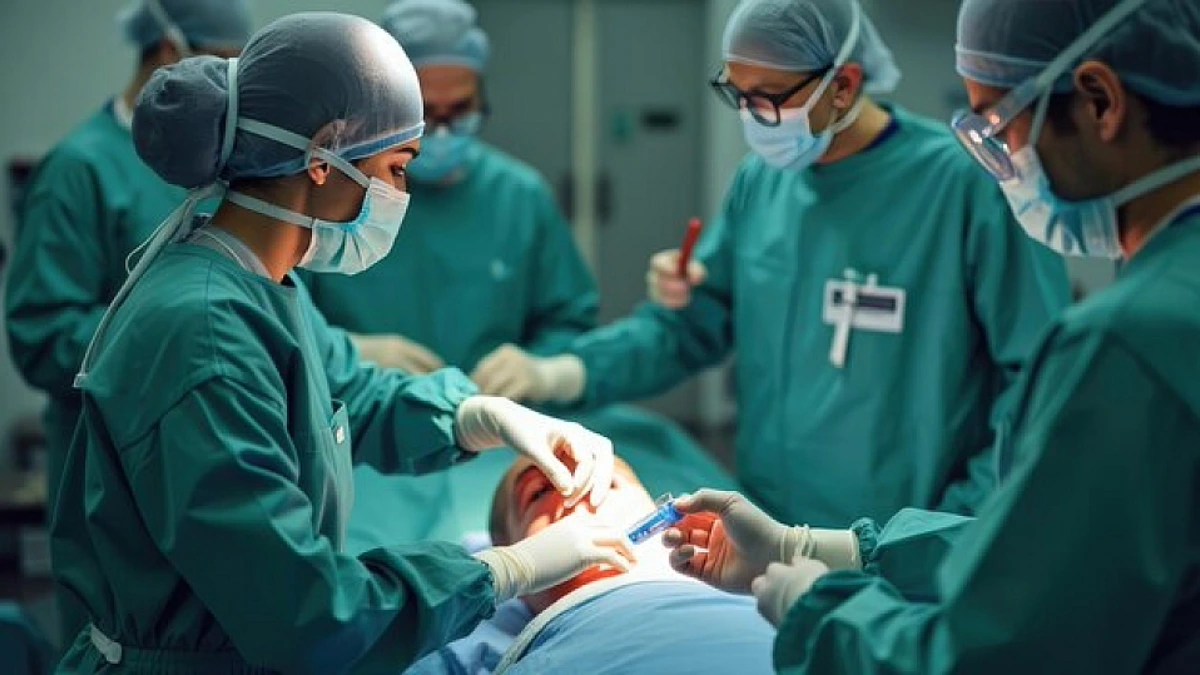Maxillofacial surgery is a specialized field of medicine addressing a range of conditions affecting the head, neck, jaw, and facial region, blending expertise in both medicine and dentistry. This multidisciplinary approach allows maxillofacial surgeons to treat complex conditions such as facial trauma, congenital abnormalities, and head and neck cancers while enhancing both function and aesthetics.
What Is Oral and Maxillofacial Surgery?
Oral and maxillofacial surgery (OMFS) encompasses the diagnosis and treatment of diseases, injuries, and deformities involving the mouth, jaws, face, and neck. Renowned as the bridge between medicine and dentistry, this discipline requires dual qualifications in both fields. Surgeons in this specialty address a broad spectrum of conditions, including temporomandibular joint disorders (TMJ), head and neck cancers, salivary gland diseases, and facial deformities, using cutting-edge techniques for optimal patient outcomes.
Common Procedures in Maxillofacial Surgery
Maxillofacial surgeons perform a wide variety of procedures tailored to patient needs:
- Dental Bone Grafting: Reinforces bone structure for dental implants.
- Cleft Lip and Palate Repair: Corrects congenital abnormalities, improving function and aesthetics.
- Jaw Surgery (Orthognathic Surgery): Treats misalignment for better chewing, speaking, and breathing.
- Reconstructive Facial Surgery: Repairs facial trauma or abnormalities for enhanced structure and appearance.
- Sleep Apnea Surgery: Addresses airway obstructions to improve breathing during sleep.
Conditions Treated in Maxillofacial Surgery
Maxillofacial surgery offers solutions for numerous conditions, including:
- Facial Trauma: Treats fractures of the jaw, cheekbones, and eye sockets.
- Head and Neck Cancers: Removes malignant growths while preserving critical functions.
- Congenital Abnormalities: Corrects issues such as cleft lip or jaw deformities.
- TMJ Disorders: Relieves chronic pain and restores joint function.
- Jaw Cysts and Tumors: Excises growths to prevent complications.
What Sets Maxillofacial Surgery Apart from Oral Surgery?
While oral surgeons and maxillofacial surgeons share overlapping expertise, the latter possesses advanced skills in reconstructive and complex facial surgeries. Oral surgeons often focus on outpatient procedures like extractions and implants, whereas maxillofacial surgeons handle intricate cases requiring hospitalization.
The Maxillofacial Surgery Process
- Before Surgery: Patients undergo a detailed evaluation to tailor the procedure to their unique needs.
- Day of Surgery: Under general anesthesia, surgeons utilize precision instruments to perform the required procedures, guided by imaging techniques like dental X-rays.
- Postoperative Care: Recovery is managed with pain control, wound care, and follow-up consultations to ensure successful healing.
Recovery After Maxillofacial Surgery
Recovery varies depending on the procedure’s complexity. Minor interventions may heal within weeks, while extensive surgeries like orthognathic procedures could take months. Common postoperative guidelines include:
- Applying ice packs to minimize swelling.
- Resting with the head elevated.
- Avoiding hard or crunchy foods and strenuous activities.
- Following prescribed medications and healthcare instructions meticulously.
Benefits of Maxillofacial Surgery
- Pain Relief: Alleviates discomfort caused by misaligned jaws or facial abnormalities.
- Enhanced Functionality: Restores proper biting, chewing, and speaking.
- Improved Aesthetics: Corrects deformities for better appearance and confidence.
- Overall Health Benefits: Treats infections and reduces risks of complications.
Potential Risks of Maxillofacial Surgery
While generally safe, maxillofacial surgery carries some risks, such as:
- Infection or excessive bleeding.
- Nerve damage causing numbness.
- Dry socket or root fragment complications.
- Temporary swelling or bruising.
Patients should promptly report symptoms like fever, severe pain, or swelling affecting breathing to their healthcare provider.
Avicenna International Hospital: Advanced Maxillofacial Care
Avicenna International Hospital in Istanbul provides world-class maxillofacial surgical services, utilizing state-of-the-art technology and highly skilled professionals. Whether addressing head and neck cancers, orthognathic surgeries, or facial reconstructive needs, the hospital ensures compassionate care and outstanding outcomes for patients worldwide.
Maxillofacial surgeons treat conditions affecting the mouth, jaw, face, and neck, including facial trauma, jaw misalignment, TMJ disorders, head and neck cancers, and congenital abnormalities like cleft lip and palate.
You may have been referred for specialized care requiring both medical and dental expertise, such as facial injuries, complex extractions, jaw surgery, or evaluation of head and neck conditions.
Conditions like impacted wisdom teeth, TMJ disorders, jaw misalignment, and facial fractures are commonly treated by oral and maxillofacial surgeons.







